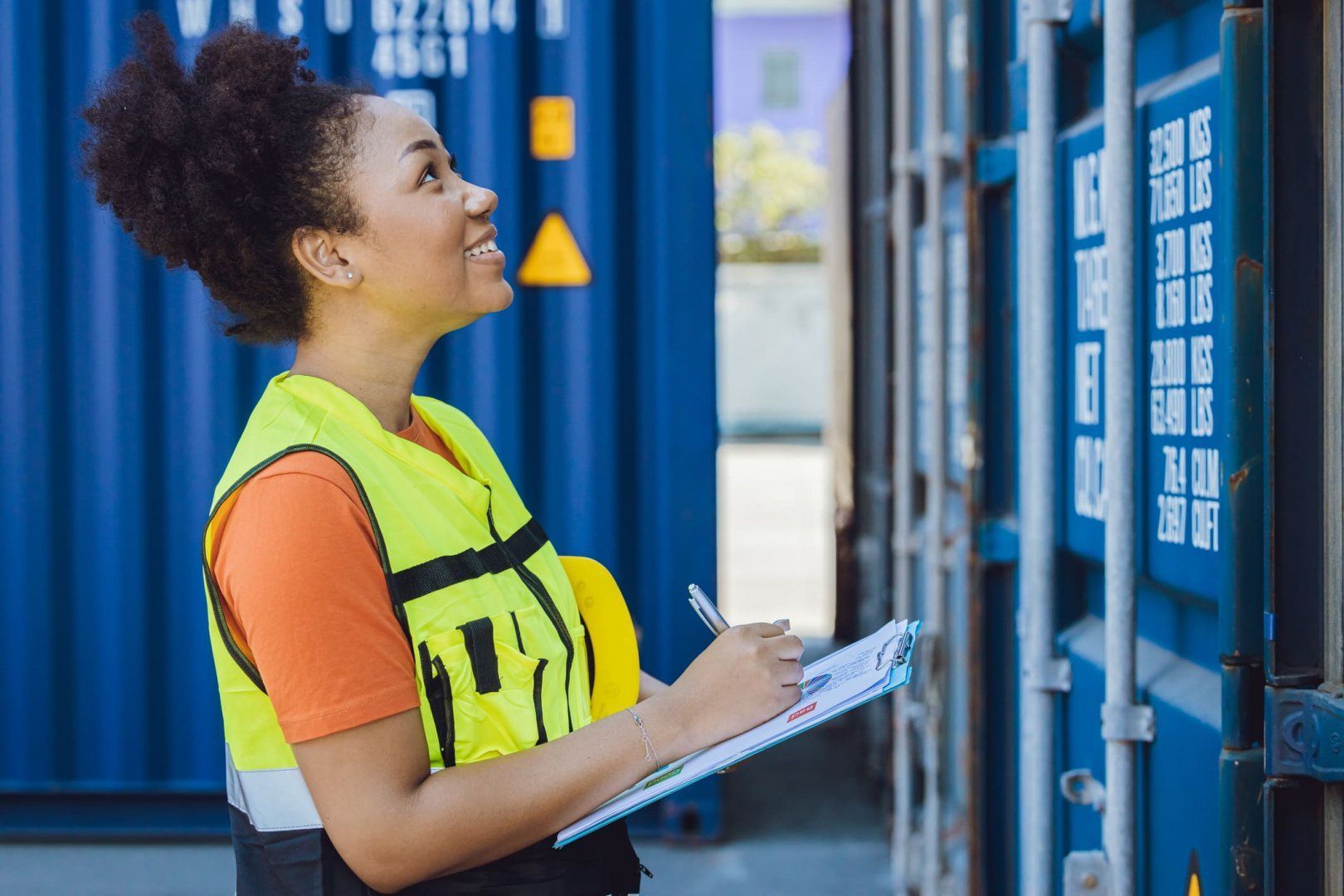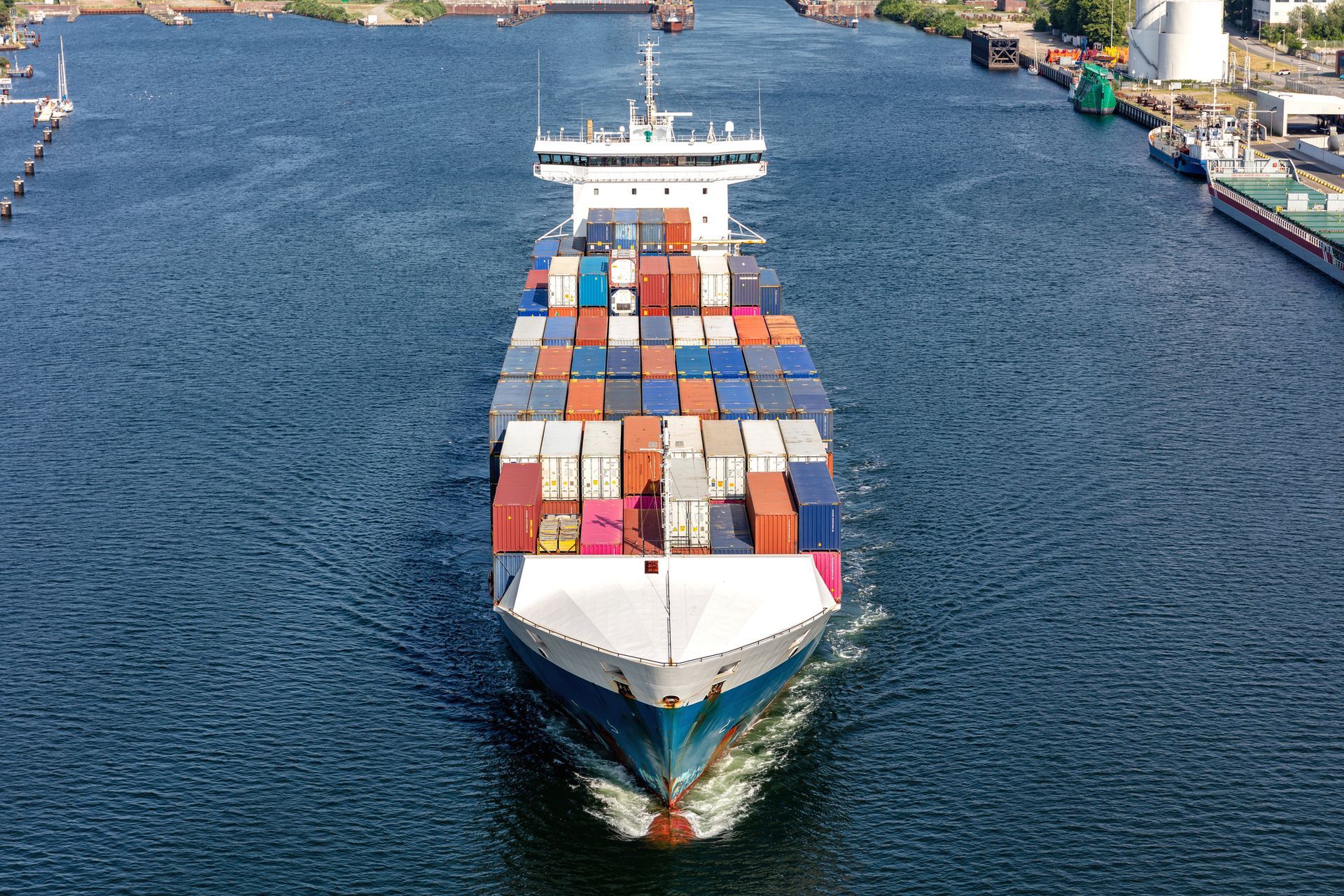
The international logistics market is dynamic and demands a high level of knowledge, resilience, and attention to detail from professionals. In this context, the role of the freight forwarder is crucial to ensure that operations are carried out efficiently and safely. To achieve excellence, one must understand the customer, the logistics process, the modes of transport, remain attentive to details, and establish partnerships that add value to their business.
Thus, it's not just about finding the best freight option and the most efficient international logistics but also about possessing a set of characteristics that make your company the most desired and always the first choice in terms of quality, speed, and seriousness.
This article will guide you through the essential aspects of becoming an excellent freight forwarder, covering everything from your responsibilities to the indispensable skills needed to stand out in the industry.
The Importance of a Freight Forwarder in International Trade
The freight forwarder is a key player in international trade, responsible for connecting exporters and importers to various available modes of transport. Their role involves coordinating shipments, choosing the best routes, and monitoring operations, ensuring that goods are delivered quickly and securely.
In addition to ensuring logistical efficiency, the freight forwarder also assists with documentation, compliance with customs requirements, and transport cost planning. Thus, they are vital to the success of international trade operations, providing logistical solutions that minimize costs and avoid delays while ensuring that the flow of goods remains stable and efficient.
Being responsible for coordinating the entire logistics process and acting as an intermediary between the importer/exporter and the companies, the freight forwarder will act according to the needs of each client.
However, even though it's unfair to try to summarize their work in just one article, operationally speaking, their main responsibilities are:
- Having a systemic view of the process for detailed logistical studies.
- Studying the best transport modes for each case and negotiating national and international freight.
- Performing the consolidation and deconsolidation of loads.
- Filling out and processing documents like the Bill of Lading (BL) and Air Waybill (AWB).
- Being constantly attentive and able to inform about shipments, unexpected stops at other ports, and disembarkations.
- Paying fees and freights according to legal regulations.
Furthermore, the freight forwarder must work closely with carriers, shipowners, and airlines, as well as manage numerous bureaucratic issues with the governmental agencies involved in the process.
In short, there’s a lot of information and a lot of responsibility that requires energy, expertise, and quickness to ensure everything flows smoothly and within the required parameters.
Differentiating Factors of an Efficient Freight Forwarder
To stand out in the market, a freight forwarder must offer more than just the basics. They need to be agile, flexible, and highly qualified, capable of anticipating and solving problems before they affect workflow. The ability to integrate services, develop strategic partnerships, and implement innovative solutions are some of the characteristics that distinguish high-performing professionals.
Maintaining a solid network of contacts with carriers, customs authorities, and other supply chain agents is essential to ensure uninterrupted logistical operations. An efficient freight forwarder must also be able to adapt quickly to changes in the international landscape and provide viable alternatives in times of crisis.
Characteristics of a Good Freight Forwarder
To become an excellent freight forwarder, there are a set of skills and behaviors that are essential to ensure the quality of the service provided. Among them are:
Knowledge of Transport Modes
For those outside the international trade segment, bringing or sending products to other countries may seem simple. In most cases, it is. However, there are numerous situations where it’s necessary to use two or three modes in the same process, or else the delivery logistics may become unviable.
Thus, having mastery over the different transport modes (air, sea, land, and rail) is one of the main requirements for acting as a freight forwarder. A good professional understands the advantages and disadvantages of each mode and knows how to use them in combination to optimize deadlines, costs, and the security of the goods.
Strategic Vision
Having a strategic vision is essential for any freight forwarder looking to stand out in the market. This means being able to look beyond daily logistical operations and understand the long-term impact of their decisions.
A freight forwarder with a strategic vision doesn’t limit themselves to simply organizing shipments; they also anticipate trends, identify risks and opportunities, and help clients achieve their goals more efficiently. This type of professional is always analyzing the global economic and political landscape, fluctuations in transport rates, changes in customs regulations, and how these factors can affect logistical operations.
Additionally, they constantly seek ways to optimize processes, reduce costs, and improve efficiency, whether by adjusting routes, negotiating better rates with carriers, or implementing technologies for automation and monitoring operations.
Resilience and Crisis Management Skills
International trade and logistics are highly susceptible to unforeseen events such as strikes, natural disasters, political and economic crises, and unexpected operational issues like cargo damage or delays at ports and airports. In these scenarios, resilience and crisis management skills become essential for a freight forwarder.
Resilience refers to the agent’s ability to quickly adapt to changes and overcome challenges while maintaining control of the situation even under significant pressure. A resilient freight forwarder doesn’t easily get shaken when obstacles arise; instead, they seek creative and immediate solutions to navigate problems and keep operations running.
Crisis management involves making quick and effective decisions in emergencies, minimizing negative impacts for the client. This includes maintaining transparent and agile communication with all parties involved, such as carriers, customs, insurers, and especially the client, who must be informed about the corrective measures taken and potential developments.
A freight forwarder with these skills knows how to handle unexpected delays, redirect shipments, adjust routes, and renegotiate deadlines, always maintaining service quality and minimizing losses as much as possible. They also prepare in advance for adverse situations by creating contingency plans for different scenarios, ensuring a quick and efficient response when crises occur.
Constant Attention
In the logistics and international trade sector, where every detail can affect the success of an operation, constant attention is an indispensable quality for a freight forwarder. This professional deals daily with a series of variables that can impact everything from meeting deadlines to the safety of the transported goods. Therefore, meticulous attention to every step of the logistics process is essential to avoid errors that can result in significant losses.
Constant attention begins with detailed monitoring of all necessary documents, such as invoices, bills of lading, and customs certificates. Any failure or omission can lead to delays, fines, or even the retention of goods. Additionally, a vigilant freight forwarder continually reviews the conditions of transport modes, rates, and regulations, ensuring that everything complies with legal and operational requirements.
Another important aspect is real-time monitoring of shipments, tracking each movement and promptly communicating any changes or delays to clients. This continuous vigilance allows the freight forwarder to anticipate problems and make proactive decisions, such as redirecting routes or adjusting delivery timelines.
Partnering with Recognized NVOCCs
One of the most effective ways for a freight forwarder to stand out in the market is to establish strategic partnerships with recognized NVOCCs (Non-Vessel Operating Common Carriers). NVOCCs are companies specializing in LCL (Less than Container Load) cargo consolidation. In this model, cargo from different clients is placed in the same container, allowing operators who do not own ships to negotiate directly with carriers and organize shipments, consolidating loads from various clients to obtain more advantageous transport conditions, as they only pay for the space that their cargo will occupy.
Partnering with recognized NVOCCs provides the freight forwarder with several competitive advantages. First, reputable NVOCCs have greater bargaining power with shipowners, carriers, and terminals, resulting in more competitive rates and special shipping conditions, such as greater flexibility in deadlines and more route options. This allows the freight forwarder to offer optimized and customized solutions to their clients, increasing satisfaction and trust in the services provided.
How to Find Good NVOCCs?
Finding good NVOCCs is an essential step for any freight forwarder looking to provide high-quality logistical services and optimize their operations in international trade. Good NVOCCs can guarantee favorable conditions for LCL transport, efficiency in managing shipments, and the necessary security to meet delivery deadlines.
To identify and select the best partners, some factors should be considered:
Reputation in the Market
The first criterion to evaluate is the reputation of the NVOCC in the logistics sector. Research reviews, testimonials from other freight forwarders, and companies that have worked with the NVOCC in question. Specialized platforms, trade associations, and industry portals can provide valuable insights into reliability, performance history, and customer satisfaction. A well-established NVOCC typically has a positive track record in terms of punctuality and operational efficiency.
Negotiating Power and Competitive Rates
A recognized NVOCC has greater negotiating power with shipowners and maritime carriers, which can result in more competitive rates and better routes for the freight forwarder. Evaluating the cost structure offered by different NVOCCs and the commercial conditions they can provide is essential to ensure that you are getting the best cost-benefit ratio for your clients.
Capacity for Innovation and Use of Technology
Technology plays an increasingly central role in logistics operations. Good NVOCCs utilize tracking technologies and management systems that allow the freight forwarder to monitor operations in real-time, optimize processes, and provide accurate and up-to-date information to clients. Check if the NVOCC offers digital platforms that facilitate tracking shipments and managing routes.
Quality of Customer Service
A reliable NVOCC should offer efficient and proactive customer service. Check if the operator provides dedicated support, availability to solve problems, and a quick and effective communication channel. This is especially important for managing unforeseen events and crises that may arise during the logistical operation.
Partnerships and Strategic Alliances
Often, good NVOCCs have strategic alliances with large carriers and transport companies, which can facilitate obtaining better transport conditions and more security for operations. Evaluating the NVOCC’s partnerships can help ensure that your operations are supported by reputable and capable agents.
Conclusion
Becoming an excellent freight forwarder requires a combination of technical knowledge, strategic vision, attention to detail, and effective crisis management skills. Those who stand out in the market are the ones who provide more than just basic services; they offer innovative solutions that meet their clients’ unique needs while ensuring operational efficiency.
By mastering the various transport modes, forging partnerships with recognized NVOCCs, and staying ahead of industry trends, you can position yourself as a reliable partner in the complex world of international trade. The journey may not always be easy, but the rewards for those who strive for excellence in this field are immense.
Continue a navegar no blog da Allink

Mantenha-se informado sobre o comércio exterior
Assine nossa newsletter e receba atualizações semanais de forma gratuita sobre o mundo da logística.




